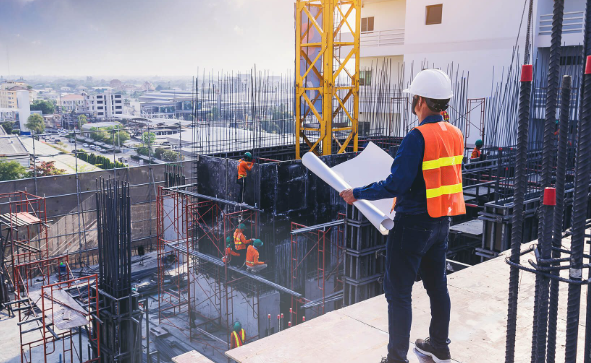
The construction industry relies heavily on efficient supply chains to deliver projects on time and within budget. However, supply chain challenges such as material shortages, rising costs, and delays can disrupt even the most meticulously planned projects. Addressing these challenges requires proactive strategies and the use of technology to improve planning, communication, and adaptability.
Understanding the common issues in supply chain management and how to overcome them is essential for ensuring successful project delivery and maintaining client trust.
Identifying Common Supply Chain Challenges
Several factors contribute to supply chain disruptions in construction projects. Recognizing these challenges is the first step in developing effective solutions:
Material shortages: Fluctuations in demand, production delays, and geopolitical factors can lead to shortages of essential materials like steel, timber, and concrete.
Price volatility: Sudden price increases for raw materials can strain budgets and impact project profitability.
Delays in delivery: Transportation bottlenecks, supplier inefficiencies, and weather conditions can result in late material deliveries, disrupting project schedules.
Poor communication: Lack of coordination between suppliers, contractors, and project managers can lead to errors and inefficiencies.
Limited supplier options: Over-reliance on a single supplier can increase vulnerability to disruptions.
Enhancing Planning and Forecasting
One of the most effective ways to address supply chain challenges is through comprehensive planning and accurate forecasting. Builders should assess material needs early in the project and account for potential risks such as shortages or delays.
Building estimating software can be a valuable tool in this process, enabling project managers to calculate precise quantities of materials and allocate budgets accordingly. By providing real-time data and cost insights, such tools help builders anticipate potential issues and develop contingency plans.
Strengthening Supplier Relationships
Maintaining strong relationships with suppliers is crucial for mitigating supply chain risks. Reliable suppliers are more likely to prioritize your orders during times of high demand or disruption.
Here are some strategies for strengthening supplier relationships:
Communicate project timelines and material needs clearly and well in advance.
Build trust through consistent payments and fair negotiations.
Diversify your supplier network to reduce dependence on a single provider.
By fostering collaboration with suppliers, builders can improve reliability and ensure a steady flow of materials for their projects.
Leveraging Technology for Supply Chain Management
Modern technology offers numerous solutions for managing construction supply chains more effectively. Building estimating software, for example, provides a centralized platform for tracking material orders, budgets, and schedules.
Other technological tools, such as inventory management systems and digital procurement platforms, can further streamline supply chain processes. These tools enable builders to monitor stock levels, automate reordering, and identify alternative suppliers quickly when issues arise.
Adapting to Price Volatility
Price volatility is a persistent challenge in construction, particularly for materials like steel, lumber, and concrete. Builders can address this issue by:
Negotiating fixed-price contracts with suppliers to lock in rates for critical materials.
Bulk purchasing or pre-ordering materials to secure lower prices and avoid future increases.
Incorporating price escalation clauses in client contracts to account for unforeseen cost changes.
Using building estimating software, project managers can create accurate budgets that include allowances for potential price fluctuations, ensuring financial stability even when market conditions change.
Improving Communication and Coordination
Effective communication among all stakeholders is essential for resolving supply chain issues quickly. Builders should establish clear channels for sharing information with suppliers, contractors, and project teams.
Regular updates and progress meetings can help identify potential bottlenecks and address them before they impact the project. Collaborative tools, such as cloud-based platforms, make it easier for teams to share updates and access critical documents in real-time.
Building Flexibility into Schedules
Rigid schedules can exacerbate the impact of supply chain disruptions. Builders should design project timelines with flexibility to accommodate delays in material delivery. This might include sequencing tasks to ensure work continues in other areas while waiting for delayed materials.
By using building estimating software, project managers can adjust timelines dynamically and communicate changes effectively to all parties involved. This flexibility helps minimise downtime and keeps projects on track.
Emphasising Sustainability
Sustainability can play a role in mitigating supply chain challenges. Sourcing local materials reduces reliance on international suppliers and shortens delivery times. Recycling materials from previous projects can also reduce the need for new resources and lower costs.
Builders who prioritise sustainable practices often find their projects less susceptible to supply chain disruptions, as they are less dependent on global markets.

Supply chain challenges are an inherent part of the construction industry, but proactive strategies and effective tools can help builders overcome these obstacles. By leveraging building estimating software, fostering strong supplier relationships, and maintaining clear communication, builders can mitigate risks and ensure smoother project delivery.
With careful planning, adaptability, and the integration of technology, supply chain disruptions can be managed effectively, enabling construction projects to proceed with greater efficiency and reliability.




(0) comments
We welcome your comments
Log In
Post a comment as Guest
Keep it Clean. Please avoid obscene, vulgar, lewd, racist or sexually-oriented language.
PLEASE TURN OFF YOUR CAPS LOCK.
Don't Threaten. Threats of harming another person will not be tolerated.
Be Truthful. Don't knowingly lie about anyone or anything.
Be Nice. No racism, sexism or any sort of -ism that is degrading to another person.
Be Proactive. Use the 'Report' link on each comment to let us know of abusive posts.
Share with Us. We'd love to hear eyewitness accounts, the history behind an article.